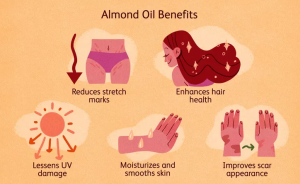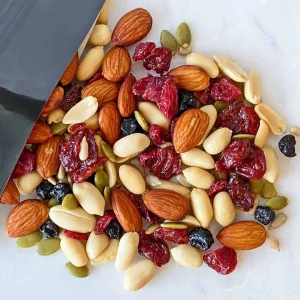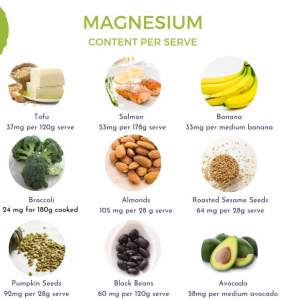Almonds are the edible seeds of Prunus dulcis, more commonly called the almond tree. They are native to the Middle East, but the United States is now the world’s largest producer.
Derived from the seeds of the almond tree, almond oil isn’t just a beauty secret; it’s also a versatile kitchen companion as it adds a delightful touch to dishes.
Its mild, nutty flavour makes it an excellent choice for salad dressings, and even light sautéing.
Beyond its culinary prowess, almond oil is a natural elixir for the skin and hair. It is packed with essential nutrients, moisturizes and soothes the skin, leaving it soft and supple.
For hair care, almond oil brings a natural shine, addresses dryness, and works wonders as a conditioning treatment. So, whether you’re enhancing the flavour of your favourite dish or pampering your skin and hair, almond oil stands out as a simple yet powerful addition to both your kitchen and beauty routine.
Beyond its culinary prowess, almond oil is a natural elixir for the skin and hair
The cost of almond oil can vary, based on factors such as the brand, quality, and extraction method. Generally, pure and high-quality almond oil tends to be more expensive.
In fact, cold-pressed or organic almond oils may come with a higher price tag due to the methods used in their production. The almonds you can buy in stores usually have the shell removed, revealing the edible nut inside. They are sold either raw or roasted.
However, making almond oil at home is, indeed, possible, and it can be a cost-effective alternative to buying commercially produced one.
Steps to produce almond oil at home as posted by an entrepreneur, Bankole Tinuoluwa Ayomitunde, on her Facebook are:
Recipe
- 2 cups of raw almonds
- 2 tablespoons of olive oil
- A blender
Method
- Put your fresh almond in a blender and blend on a low speed, then gradually increase the speed once the seeds are crushed. Peradventure it sticks to the sides of the blender during this process, turn off the blender and wipe.
- Keep grinding until it turns to a creamy paste
- Add oil if it starts to mold up into a ball and continue to blend, if it looks too thick add more oil and blend till they stick
- Bring out from the blender and transfer to a plastic container, leave to sit in a room temperature for two weeks. During this time, the main almond oil will be separated from the rest of the mixtures.
- Sieve the oil without any trace of the almond paste. Store and use.
 Uses
Uses
According to experts at VeryWell, thanks to its antioxidant and anti-inflammatory properties, almond oil has many uses.
Some people add almond oil to smoothies, while others use it topically as part of their daily skin routine.
Sweet almond oil is also used as an ingredient in many cosmetic and hair care products, including:
- Soaps
- Lotions
- Body butter
- Lip balms
- Shampoos and conditioners
- Body washes
- Brightening serums
- Facial cleansers
- Repairing damaged hair
- Taming frizzy hair
- Promoting hair growth

A nutritious antioxidant
Experts on Healthline describe almonds as high in antioxidants, vitamin E, protein, and fiber; noting that the oil may have health benefits, including supporting heart health and reducing blood pressure, among others.
Apart from being among the world’s most popular tree nuts, almonds are highly nutritious and rich in healthy fats, antioxidants, vitamins, and minerals.
An article written by experts based on scientific evidence and fact checked by experts on healthline highlights nine health benefits of almonds.
Almonds deliver a massive amount of nutrients
They are used to produce products like almond milk, oil, butter, flour, paste, or marzipan. It is important to note that your body does not absorb about 6% of the fats in almonds because this fat is inaccessible to digestive enzymes.
Almonds are also high in phytic acid, a substance that binds certain minerals and prevents them from being absorbed by the body. While phytic acid is generally considered a healthy antioxidant, it also slightly reduces the amount of iron, zinc, and calcium your body absorbs from almonds.

Almonds are loaded with antioxidants
Antioxidants protect against oxidative stress, which can damage molecules in the cells and contribute to inflammation, aging, and diseases like cancer.
Experts say that the powerful antioxidants in almonds are largely concentrated in the brown layer of their skin. For this reason, blanched almonds [those with skin removed] have less antioxidant capacity.
A 2022 analysis of 16 clinical trials including over 800 participants found that eating up to 60g of almonds per day reduced two different markers of inflammation in the body.
Almonds are high in vitamin E
Vitamin E is a family of fat-soluble antioxidants. These antioxidants are found within the structure of cell membranes in your body, protecting your cells from oxidative damage.
Almonds are among the world’s best sources of vitamin E. Just 1 oz provides 48% of the DV. Several studies have linked higher vitamin E intake with lower rates of heart disease, cancer, and Alzheimer’s disease. However, more research is needed to fully confirm these benefits.
 Almonds can assist with blood sugar control
Almonds can assist with blood sugar control
Nuts are low in carbs but high in healthy fats, protein, and fiber. This makes them a perfect choice for people with diabetes. Another boon of almonds is their remarkably high amount of magnesium. Magnesium is a mineral involved in more than 300 bodily processes, including blood sugar management.
The daily value for magnesium is 420 milligrams (mg). And 2 oz of almonds provides almost half that amount: 153mg of this important mineral.
Interestingly, it is estimated that at least a quarter of people with type 2 diabetes have a deficiency in magnesium. Adequate magnesium intake has been associated with a reduced risk of type 2 diabetes and improved blood sugar management in people with diabetes.
Magnesium may also be linked to reductions in insulin resistance among people with and without diabetes. This indicates that foods high in magnesium, such as almonds, may help prevent metabolic syndrome and type 2 diabetes, both of which are major health concerns.
 Magnesium also benefits blood pressure levels
Magnesium also benefits blood pressure levels
The magnesium in almonds may also help lower blood pressure levels. High blood pressure is one of the leading drivers of heart attacks, strokes, and kidney failure.
A deficiency in magnesium is strongly linked to high blood pressure. Several meta-analyses have suggested that magnesium supplementation can significantly lower blood pressure among people with and without high blood pressure, as well as people with preexisting chronic disease. Adding one to two servings of almonds to your diet can help you meet the recommended daily magnesium intake, which may have positive effects on your health.

 Almonds can lower cholesterol levels
Almonds can lower cholesterol levels
High levels of Low-Density Lipoproteins (LDLs) in your blood also known as ‘bad’ cholesterol are a well-known risk factor for heart disease. Your diet can have major effects on LDL levels. Some studies have suggested almonds may be effective in lowering LDL.
A 6-week study including 107 participants at high risk of cardiovascular disease found that a diet providing 20% of calories from almonds lowered LDL cholesterol levels by an average of 9.7milligrams per deciliter (mg/dL).
Another study found that eating 42g of almonds per day lowered LDL cholesterol by 5.3 mg/dL while maintaining High-Density Lipoproteins (HDLs), or ‘good’ cholesterol. Participants also lost belly fat.
Almonds may be effective for weight loss
Nuts contain several nutrients that your body struggles to break down and digest. Your body does not absorb about 6% of the calories in nuts. Additionally, some evidence suggests that eating nuts can boost metabolism slightly.
Due to their satiating properties, nuts are a great addition to an effective weight loss diet.
A review of 64 clinical trials and 14 meta-analyses reported that almonds were the only nut that showed a small but significant reduction in body weight and fat mass.
Conclusion
Almonds and other nuts are very high in calories and it is important to be mindful when snacking on almonds and other nuts. As with all foods, moderation is key.


